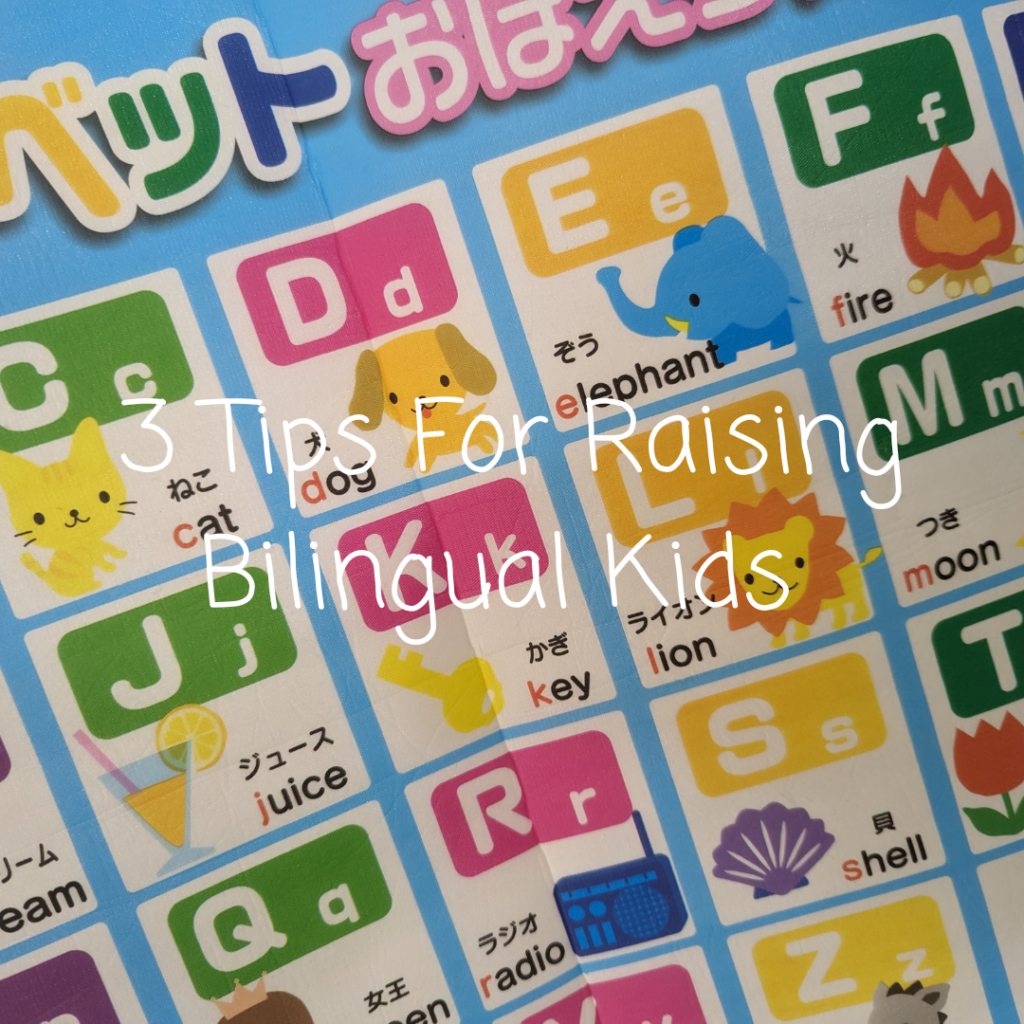So, raising bilingual kids? It’s like opening up a whole new world for them. Think of all the doors it unlocks – different cultures, different ways of seeing things. It’s pretty amazing! But, let’s be real, it’s also a total adventure, and everyone’s journey is different. There’s no perfect way to do it. It’s all about what works for your family – you, the kids, the whole vibe at home. Basically, you do you! There’s no right or wrong, just your own awesome way. In this blog, I just wanted to share my own experiences and what I’ve learned along the way, hoping it gives you a heads-up on what to expect and maybe helps you out on your own bilingual adventure.
Saturday Kanji (Japanese letters) & Weekday Chaos: Our Bilingual Kid Life
Weekdays are just regular school days, but Saturdays? That’s when Japanese language school kicks in—kanji (Japanese letters), grammar, culture, the whole deal. It’s like my kids are living in two separate worlds, which is pretty neat. And it brings back tons of memories, because I went to Japanese school growing up, too!
A Little About Me: From Mexico to the US!
Okay, a mini-bio before we dive in. I was born in Mexico, which was already a cultural fiesta! Japanese was my first language, thanks to my parents, and I also learned some Spanish… well, ‘learned’ is a strong word. Let’s just say my Spanish is more like a fun party trick than actual fluency. And to be fair, I was at Japanese school Monday to Friday, so that is my excuse! At 18, I packed my bags for the US for school, and now I’m here, married with two boys. Who’d have known it? Basically, I’ve been living this multi-language, multi-culture circus my whole life, and that’s why I’m so determined my kids learn Japanese absorbing not only the language but also culture, value, and more!
The Weekday Routine: Embracing the Local System
So, weekdays? It’s your classic school routine. My kids are at the local elementary, soaking up all the American language and culture. They’re figuring out how everything works here, making friends, building their crew – you know, the usual kid stuff. It’s their everyday life, where they learn their letters and just be kids. It’s their comfort zone, the routine they’re used to. But, let me tell you, it wasn’t always smooth sailing. When they started kindergarten, it was rough. See, we’re a Japanese-speaking household, so their English was basically non-existent. And because of the pandemic, preschool was a no-go. So, they went into kindergarten with basically just ‘hello’ and ‘thank you’ in their vocabulary. I was a nervous wreck, but I think they were even more stressed. Especially my younger one. He had the worst separation anxiety, like, full-on meltdown every morning for six whole months. It was brutal! I think I need to write a whole other blog post about that separation anxiety thing, ’cause it’s a huge topic for us.
Saturday School: Maintaining the Heritage Language
Alright, so then Saturday rolls around, and it’s like, BAM! We’re in a whole different dimension. Seriously, it’s not just a chill weekend day; it’s Japanese school time. And get this – it starts an hour earlier than regular school! Talk about a chaotic wake-up call, right? This is where our Japanese language gets to really stretch its legs, where it comes to life. It’s not just about learning vocab or verb endings; it’s diving headfirst into the crazy world of Japanese grammar, those super complicated sentences and the whole polite speech thing that takes forever to get. And then there’s the writing! Hiragana, katakana, and, oh yeah, the kanji. Imagine trying to remember thousands of characters! Plus, it’s not just about the words; it’s about getting all the little cultural details, the unwritten rules, the traditions that have been around forever. It’s a huge commitment, a weekly thing that takes a lot of discipline and, let’s be honest, patience. It’s a choice we make, a way to keep their Japanese language and culture alive and kicking, to make sure they’re connected to their roots in a real way.
The Extra Homework: A Balancing Act
Let’s get real about this whole dual-school situation, shall we? The absolute, undeniable truth is… extra homework. Like, a lot of extra homework. It’s not just about tackling the regular weekday assignments; oh no, that’s just the warm-up. Then comes Saturday school, and boom, another mountain of work. Since they’re cramming a whole year’s worth of textbook into just Saturdays, most of the real work happens at home. We’re talking memorizing kanji, those intricate characters that can feel like trying to remember a secret code. And then, just to keep things interesting, there are the grammar exercises, where they’re wrestling with sentence structures that would make a linguist scratch their head. It’s a serious time commitment, a huge chunk of their week dedicated to academics. And it’s not just the kids who are putting in the hours; it demands a ton of discipline and organization from us parents too. We’re the schedulers, the motivators, the homework helpers, the ones making sure everything gets done. It’s a team effort, a constant juggling act, and honestly, sometimes it feels like we’re running a second school right here at home.
Honestly, things are getting even trickier now that my third grader’s workload from his regular school has ramped up. He’s really having to become a master of time management to get everything done. It’s a constant struggle to figure out which homework to tackle first, because, let’s face it, you can’t really say one assignment is more important than another. You don’t want them doing a rushed job on anything, right? But at the same time, expecting them to ace every single assignment from both schools? That’s just not the reality we live in. We’re not pushing for perfection, but we do encourage him to do his best.
Cultural Differences: The Fiscal Year Puzzle
One particularly interesting aspect is the difference in fiscal years. In Japan, the fiscal year starts in April, while in our local system, it often begins in September. This impacts everything from school calendars to standardized testing schedules. It’s a detail that requires constant awareness and adjustment.
To give you an idea, my older son is currently in 3rd grade at his regular school, but the Japanese language school system is a bit ahead, so he’ll be starting 4th grade there next month. Similarly, my younger son will be starting 1st grade at Japanese language school while he’s still finishing up kindergarten at his local school. Oh, yeah, they get their wires crossed sometimes, especially the little man!
Raising Bilingual Kids: The Rewards and Challenges
Raising bilingual children is an investment in their future. It opens doors to new opportunities, enhances cognitive development, and fosters cultural understanding. However, it’s not without its challenges.
The rewards are immense:
- Enhanced communication skills: To put it simply, they’re setting themselves up to connect with a huge chunk of the world. Imagine being able to easily talk to anyone in Japan, especially family like grandparents, cousins, uncles and more! And if they dream of studying or working there someday, boom, they can. They’ll have a massive advantage, a wider range of possibilities, and way more career options down the line.
- Increased cultural awareness: They’re becoming so culturally aware, which is really exciting. They’re comparing everyday things, like co-sleeping, which is normal in Japan but less so here. They’re not just observing, they’re analyzing – ‘This way has advantages, that way has disadvantages.’ My older son even recognized how co-sleeping affects his social life with sleepovers. It’s fantastic to see them apply cultural understanding to their own experiences. It’s definitely sharpening their cognitive abilities
- Boosted their self-confidence.: You know, self-confidence is just so vital, especially for kids. My younger one really struggled with it for a while. He’d put himself down, and it was hard to keep his spirits up. Then kindergarten hit, and it was a whole new level of worry. He was convinced he couldn’t understand or speak English, and that he’d never make friends. I tried everything to boost him up. But honestly? The biggest change has been seeing him chat with his friends in English. That’s what finally did the trick. He’s so much more confident now. I can tell that they are so proud of themselves!
- Optimized time management strategies: I see this a lot with my older son, especially now that he’s juggling so much homework. He’s become a master of ‘finding time.’ He knocks out his Japanese school homework right after getting home, and tackles his regular school stuff in the mornings or during that ‘catch up time’ at school. He’s even started checking his own work and meeting deadlines on his own. Sure, he still asks for help organizing sometimes, but he’s really got this down. He’s been doing this since 1st grade, so he’s basically an expert at figuring out what needs to be done, scheduling it, and hitting those deadlines. It’s definitely going to benefit him in the long run.
The challenges are real:
- Time commitment: Honestly, juggling two school systems takes a ton of time and effort. And it makes things like joining sports teams really tricky. You know, with weekend tournaments and games, you often have to choose – Japanese school or the game. Plus, our Japanese school has a pretty strict attendance policy, so missing Saturdays is a no-go. That’s a big reason my boys aren’t on any sports teams yet, because weekdays are packed with homework too. Even birthday parties on Saturdays become a tough call. We’re constantly having these big family talks, figuring out what they really want to do and what options we have. It’s a lot of research and a lot of planning! You might be able to find a language school with a more flexible attendance policy, or sports teams that only play on weekdays. It really comes down to what you and your kids value most.
- Maintaining motivation: Seriously, keeping them interested in both languages? It’s a real struggle. My older son, with all the extra work, even asked me once why he had to go to two schools. Totally fair question, right? I flipped it back on him, and now he’s like, ‘Well, I have to learn Japanese.’ When I asked him why, he just said, ‘Because…I’m Japanese!’ He’s found his own reason, so he doesn’t ask anymore. But we still have to nudge him about homework, you know? That’s a constant battle, keeping him motivated.
- Potential for language mixing: They may mix languages sometimes, which definitely needs patience and guidance. Lately, with my younger one picking up more English, they’ve started chatting in English at home. And you know, he’s so thrilled to use his new English, I don’t want to discourage that at all. But my husband and I have a firm rule: we only speak to them in Japanese, and we expect them to reply in Japanese too. We’ve decided on this, and that’s how it’s going to be, end of story.
Our Journey Continues:
Our journey is ongoing. We’re constantly learning and adapting. We’ve found that open communication, a supportive environment, and a healthy dose of patience are essential.
If you’re considering a similar path, remember that every family’s experience is unique. Embrace the challenges, celebrate the successes, and enjoy the beautiful journey of raising bilingual children.





